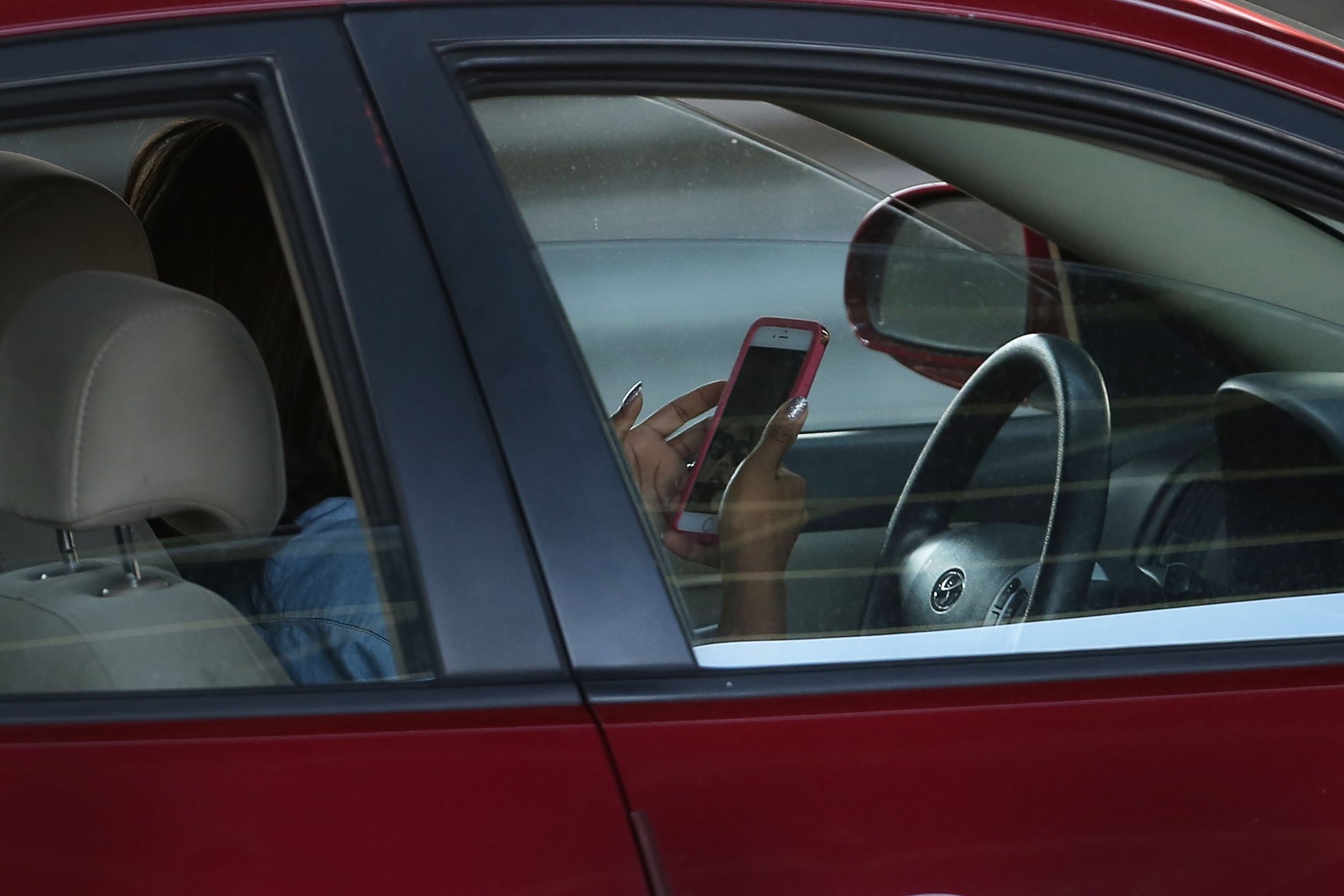
A lawsuit filed against Apple after a fatal texting-while-driving collision in Texas raises an interesting question about smartphone manufacturers’ liability in such incidents. Namely: Can Apple, Samsung, or other such companies be sued on the grounds that they don’t do enough to prevent drivers from getting distracted by calls, texts and other notifications? It’s an important issue, given that more than 3,100 people were killed in distracted driving incidents in 2014, according to government data. (Drivers can be distracted by their phones but also by other passengers, food, and other factors.)
Several legal experts we spoke with say Apple is unlikely to be liable when it comes to texting-while-driving incidents.
“To say that an iPhone, when it’s being used improperly, or being used in an irresponsible manner, is responsible for the injury in this case is just too much of a stretch,” says Gail Gottehrer, partner at Axinn Veltrop & Harkrider LLP and technology litigation expert. “If you think about it, then you would have manufacturers being responsible for all sorts of distractions. For example, all too often you drive past somebody who’s reading a book on the steering wheel. Does that mean that distraction is the source of an accident if it happens, so you would go back and sue the book publisher?”
Still, Mark Geistfeld, Sheila Lubetsky Birnbaum Professor of Civil Litigation at The New York University School of Law, believes Apple and similar firms have a responsibility to explore ways to cut down on distracted driving. “The way the issue is being framed is that manufacturers don’t have to worry about this, flat stop, and that’s simply incorrect,” he says. “They’re under an obligation to search for cost-effective ways to do this. If such a fix becomes feasible, then they’re obligated to adopt it.”
One such technological solution might be for smartphone makers to disable or limit a device’s functionality when it’s traveling at driving speeds. Modern phones are aware of how fast they’re traveling, thanks to their internal accelerometers and GPS chips. Indeed, Apple has long held a patent related to this approach, though it isn’t clear if it has developed the idea. Apple did not respond to TIME’s questions about the patent or the Texas case.
Of course, there’s no guarantee that a phone is being used in a potentially dangerous way simply because it’s traveling at high speeds. Perhaps it’s being used by a passenger in car, for instance, or while on a train. Jennifer H. Arlen, Norma Z. Paige Professor of Law at The New York University School of Law, says that makes texting-while-driving cases a “very good place for liability imposed directly on the person who misuses [a phone], and perhaps criminal statutes that enhance the penalties on people who have serious accidents while texting and driving.” (Indeed, the driver in the Texas case was found guilty of negligent homicide; Texas has no statewide law banning texting while driving.)
Apple and other smartphone manufacturers are also developing systems that tie Siri and other voice control systems directly into vehicles’ infotainment system. Apple calls its system CarPlay, for Android devices there’s Android Auto. Whereas many states have laws against using a handheld device while driving, there are often exemptions for these so-called “hands-free” systems. (They’re often seen as safer, though research disputes that.) These systems involve different liability circumstances because they’re expressly designed for use while driving — but they also show safety warnings meant to remind users to pay attention to the road.
Another fix, though a much longer-term one, could be self-driving cars. After all, there’s no harm in using your phone if you don’t need to drive your own vehicle. Still, fully autonomous cars are still years, if not decades, away. The autonomous technology we have now largely still requires drivers to be ready to take over at a moment’s notice, despite being marketed with terms like “Autopilot,” as is the case with Tesla vehicles.
Perhaps the most promising and immediately available solution are apps that, when enabled, automatically reply to incoming calls and texts with a message to the effect of: “I’m driving, I’ll call you back later.” In some ways, it’s surprising that Apple and other smartphone makers largely fail to offer such apps or settings by default. For now, that functionality remains optional, all while many people accept the risk that comes with distracted driving. The problem may only be fixed, then, when drivers realize just how dangerous that can be.
More Must-Reads From TIME
- The 100 Most Influential People of 2024
- Coco Gauff Is Playing for Herself Now
- Scenes From Pro-Palestinian Encampments Across U.S. Universities
- 6 Compliments That Land Every Time
- If You're Dating Right Now , You're Brave: Column
- The AI That Could Heal a Divided Internet
- Fallout Is a Brilliant Model for the Future of Video Game Adaptations
- Want Weekly Recs on What to Watch, Read, and More? Sign Up for Worth Your Time
Contact us at letters@time.com